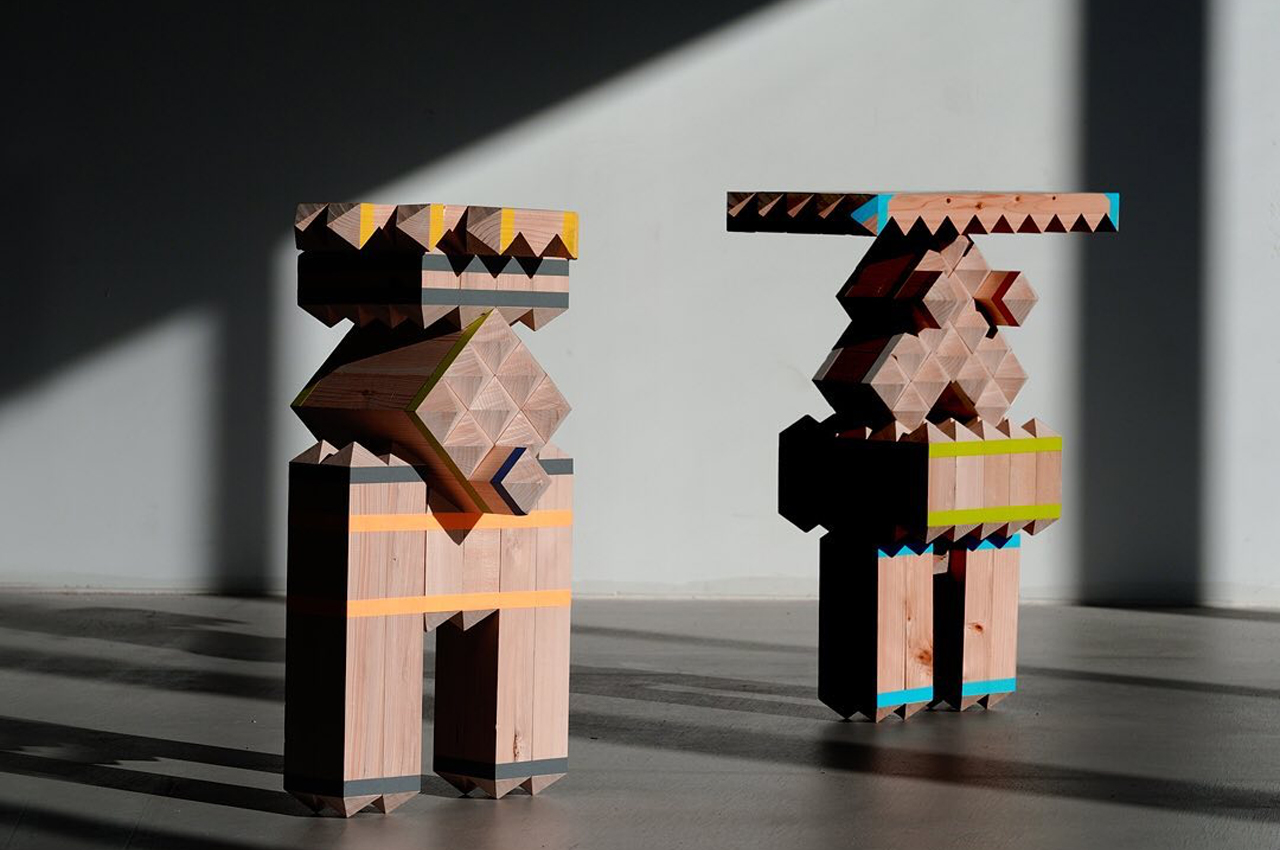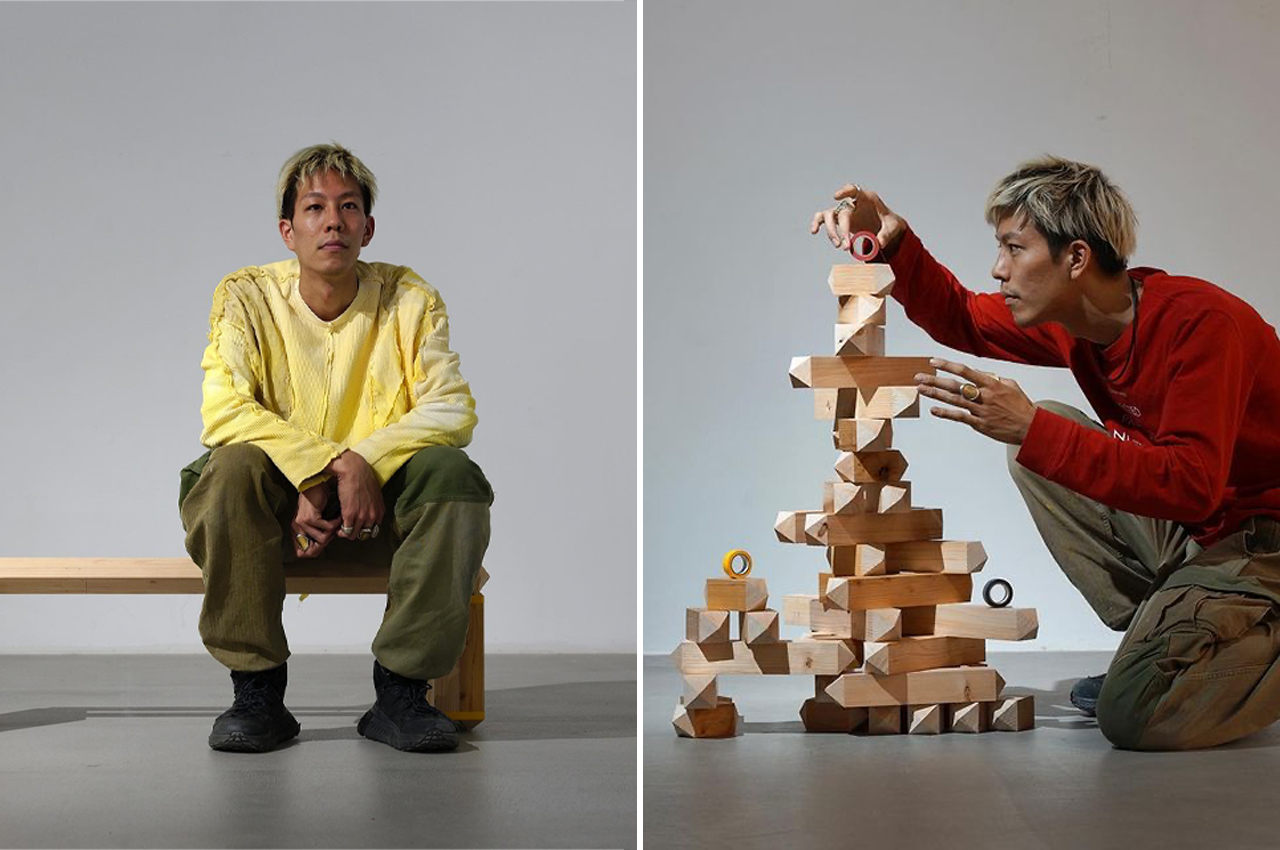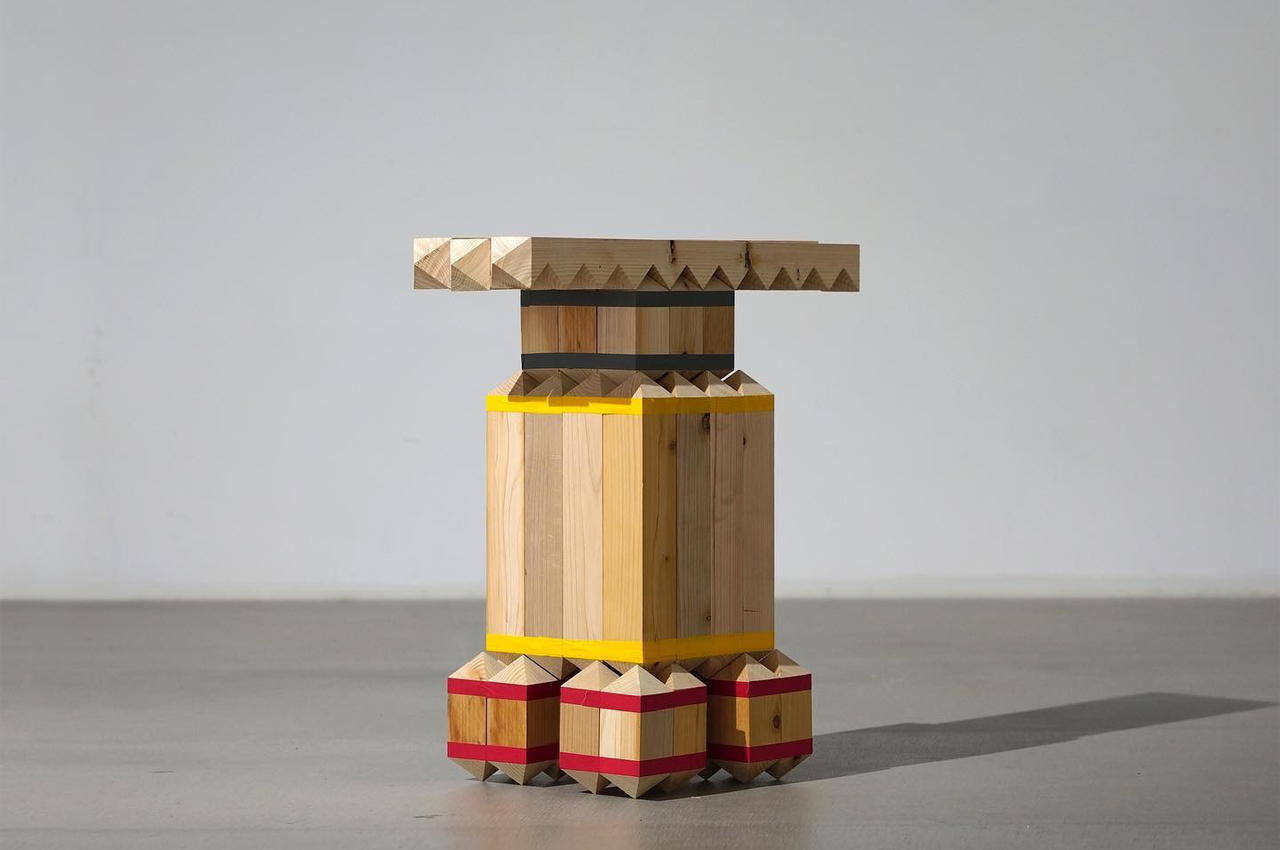
Deku is a modular furniture building system composed of wooden planks that fasten together at the planks’ 45-degree, pyramid-shaped edges.
While modular furniture is functional by design, it also evokes the designer’s most creative tendencies. In time with our world’s rapid WFH movement and mobile lifestyles, the emergence of modular furniture has redefined what our living spaces could look and feel like.
Designer: Takuto Ohta


Combining their artistic skills with the practical edge of an industrial designer, Takuto Ohta designed Deku, a modular furniture system comprised of wooden planks that can be stacked and configured together to form numerous different furniture pieces, from tabletops to benches.
Named after the Japanese word for wooden puppet or doll, Deku is inspired by the stone piles that wash ashore on riverbanks. In creating Deku, Ohta sharpened the ends of each wooden plank to form 45-degree angles, allowing each wooden plank to slink into one another with ease.
This triangular building system is essentially what allows for so many different configurations to be made from Deku. Using colorful masking tape to fasten each module together, Ohta was able to add some playfulness to the project’s overall display and assembly process.
Using human instinct as their natural guide for building each piece of furniture, Ohta notes, “I don’t think about what I’m making, I feel the laws of physics in the freedom and inconvenience of combination, and I see the forest with the smell and texture of trees. When I moved my hand, the furniture was made naturally.” In the development of Deku, Ohta seems to find the human’s most primal desire: to play and fill the gaps.